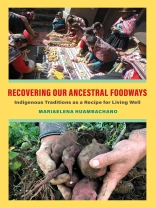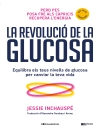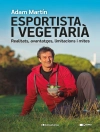Based on over ten years of fieldwork in Peru and Aotearoa New Zealand,
Recovering Our Ancestral Foodways explores how Quechua and Māori peoples describe, define, and enact well‑being through the lens of foodways. By analyzing how these two Indigenous communities operationalize knowledge to promote sustainable food systems, physical and spiritual well‑being, and community health, Mariaelena Huambachano puts forth a powerful philosophy of food sovereignty called the Chakana/Māhutonga. She argues that this framework offers a foundation for understanding the practices and policies needed to transform the global food system to nourish the world and preserve the Earth. One of the key features of this book is the development of the author’s original research methodology—the Khipu Model—which will serve as a vital resource for future research on Indigenous ways of knowing.
Inhaltsverzeichnis
Contents
List of Illustrations
Acknowledgments
Introduction: A Meeting of Two Different Worlds:
Camote and Kūmara
1. Indigenous Food Sovereignty
2. The Weaving of the Khipu Model: An Indigenous Knowledge-Based Research Framework
3. Together, We Grow: Quechua and Māori Understandings of Well-Being and Shared Similarities to Sustainable Food Systems
4. Allin Kawsay and Values and Principles for Sustainable Food Systems
5. Well-Being through a Māori Lens: Māori Principles and Values Linked to Sustainable Food Systems
6. Rematriating Holistic/Collective Well-Being: The Chakana/Māhutonga, an Indigenous Food Sovereignty Framework
Conclusion. We Want Foods That Tell Our Story: Reclaiming and Celebrating Indigenous Food Sovereignty
Glossary of Māori and Quechua Terms
Notes
Bibliography
Index
Über den Autor
Mariaelena Huambachano is Assistant Professor of Environmental Humanities and Native American and Indigenous Studies at Syracuse University.












